Supreme Court Limits EPA Power
Air Date: Week of July 1, 2022
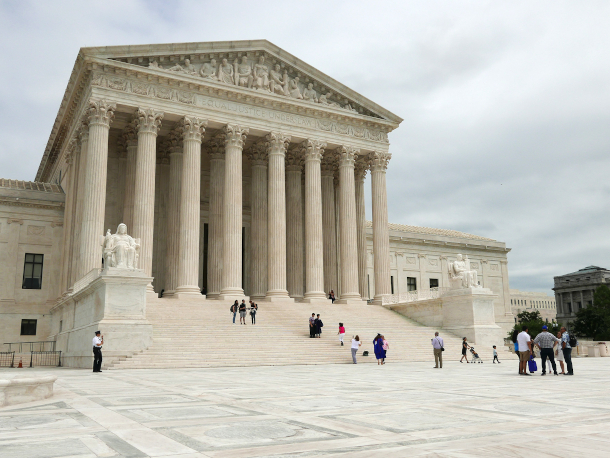
The court's decision in West Virginia v. EPA says that the agency effectively does not have the power to regulate the mix of generation sources to address carbon dioxide emissions from power plants. (Photo: Susan Melkisethian, Flickr, CC BY-NC-ND 2.0)
In a major 6 to 3 decision with sobering implications for climate policy, the conservative majority of the Supreme Court ruled that the Environmental Protection Agency overstepped its authority when it created guidelines for how utilities generate electricity. Vermont Law School Professor Pat Parenteau joins Host Steve Curwood to discuss how the decision goes against precedent and hampers efforts to tackle climate change.
Transcript
BASCOMB: From PRX and the Jennifer and Ted Stanley Studios at the University of Massachusetts, Boston this is Living on Earth. I’m Bobby Bascomb.
CURWOOD: And I’m Steve Curwood.
Coal-fired power plant operators may be cheering the recent Supreme Court ruling against the Environmental Protection Agency, but critics say the high court has shredded key precedents and ignored technical competence. The case, known as West Virginia versus EPA, was brought against the Obama era Clean Power Plan, even though those rules never went into effect. Vermont Law School professor Pat Parenteau joins us now. So, Pat, what exactly did the court rule?
PARENTEAU: Well, the court decided that EPA's interpretation of its authority under the Clean Air Act to require shifting from carbon intensive sources of electricity like coal to cleaner sources like gas and wind and solar went beyond the authority that Congress gave to EPA in the 1970 Clean Air Act.
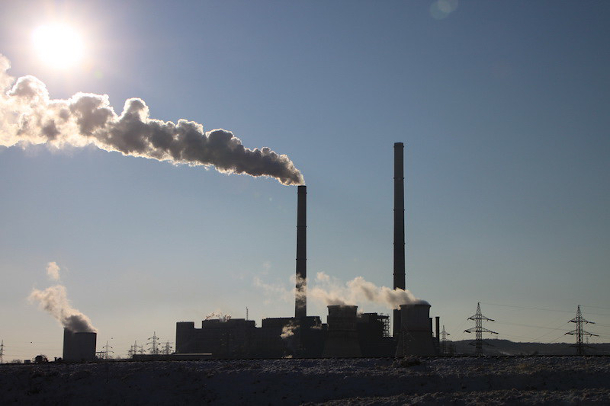
The 6-3 ruling in West Virginia v. EPA holds that EPA needs clearer direction from Congress in order to regulate emissions from power plants by requiring states to use more gas, solar and wind to generate electricity. (Photo: Emilian Robert Vicol, Flickr, CC BY 2.0)
CURWOOD: What were the reasons that the Court used to decide this case?
PARENTEAU: The Court has now formalized -- and this is an opinion by the Chief Justice Roberts, six to three decision -- has now formalized what it calls the "major question doctrine," which means when an agency adopts a new interpretation, and a new approach to a problem like climate change and greenhouse gas emissions, and adopts a system-wide approach to dealing with a problem, which is a systemic problem, that under this new doctrine, the Court is going to demand that Congress has been explicit in authorizing the agency to take this new, broader approach to a really big problem like climate change with really big economic and political consequences. The Court didn't specify exactly how Congress could make its intent clearer or more manifest; it simply said, in its view, Congress was not clear enough in Section 111(d) of the Clean Air Act, and therefore EPA has no authority to require generation shifting towards cleaner sources of electricity.
CURWOOD: Pat, I'm confused. I thought for years the Supreme Court conservatives have been saying, "you've got to look to the text of the law." It sounds like you're telling me that in this case, the Court says, ehh, "text smext, we decide."
PARENTEAU: That's right. The Court is saying text is not enough when it comes to this new interpretation; and again, this is the Court's characterization, EPA argued their interpretation wasn't new. EPA pointed to countless examples -- acid rain, mercury controls, interstate air pollution -- where the agency had looked at the system as a whole and looked at averaging of emissions and looked at trading of emissions under a cap and trade program in numerous circumstances. So EPA was saying, our interpretation isn't new. It's consistent with the way we've looked at major pollution problems over the course of the last five decades.
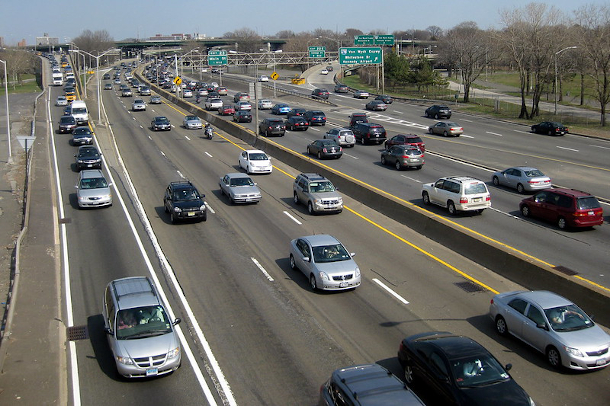
The high court said that the Obama administration’s 2015 Clean Power rule which attempted to shift states away from coal and toward natural gas and renewable sources was an unlawful expansion of EPA’s power. (Photo: Wally Gobetz, Flickr, CC by NC ND 2.0)
CURWOOD: Now, what are the implications now for the EPA's authority to regulate greenhouse gases from power plants and elsewhere, perhaps in the economy as well?
PARENTEAU: Well, the Court's only decided what the EPA cannot do, which is, as we've talked, require generation shifting. But the Court doesn't say what EPA can do. And it doesn't really talk about what are the options that would be permissible interpretations. It didn't provide even a hint of that. And Justice Kagan's dissent excoriates the majority for not doing that. If the court thinks it knows what Congress meant to give EPA in terms of authority, why didn't it say so? But it didn't. So we're left, and EPA is left wondering, what options do we still have at our disposal? And we'll have to wait until 2024 to find out what EPA thinks it still has the authority to do. That's when EPA will issue a new rule under Section 111(d) of the Clean Air Act.
CURWOOD: What does this ruling say about other agencies' rulemaking power? I know the Securities and Exchange Commission wants publicly traded businesses to say what their risk and exposure to climate disruption is.
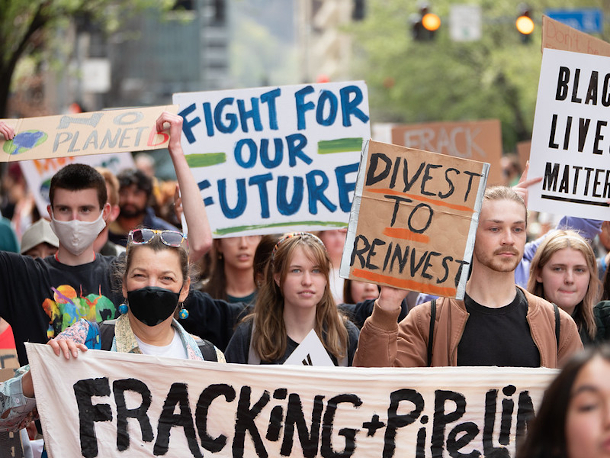
Environmental activists have fought for immediate climate action for years and some worry that the West Virginia v. EPA decision will set the administration back on its climate agenda. (Photo: Mark Dixon, Flickr, CC BY 2.0)
PARENTEAU: Right. This is a proposed rule from the SEC which has been attacked right out of the box by the Chamber of Commerce, by many of the same states attacking the Clean Power Plan that we've been talking about. And the financial risks of companies that are heavily reliant not only on producing fossil fuels like Exxon and BP and the other major oil companies, but all of the companies whose supply chains are heavily reliant on fossil fuel driven energy, are at financial risk. These assets that they're claiming are potentially worthless. There's this concept of stranded assets. All of the known reserves in the world of oil and gas can't possibly be burned without burning the planet, so to speak, without unleashing really catastrophic climate change. That's what all the scientists, climate scientists are saying, right? So the SEC is saying, this isn't just an environmental risk, it isn't just a public health and safety risk, or even a national security risk. It's a huge financial risk to investors, to banks, and so forth. And we know that the challenge to this SEC rule, once it's finalized, is going all the way to the Supreme Court, because it's a big rule with big implications. And we'll probably see a Supreme Court decision analyzing whether this new rule violates this new major question doctrine.
Today's #SCOTUS ruling on West Virginia vs EPA constitutes yet another blow as part of a coordinated attack on the health of Black, brown and low-income communities by the U.S. judicial branch, greedy corporations & billionaires, religious extremists, and white supremacists. pic.twitter.com/0UtuCSyjFT
— Green New Deal Network (@GND_Network) June 30, 2022
CURWOOD: Sounds like this Court thinks that Congress has to specify everything if something is going to change, and yet the Congress we have right now doesn't seem to be able to pass much in the way of actions.
PARENTEAU: That's right. The Court is oblivious to the reality of how difficult it is for Congress, first of all, to anticipate problems that arise in the future, and clearly articulate to the agencies what the scope of their authority is to deal with newly discovered threats. And it's also ignoring the fact that Congress created and authorized these expert agencies to exercise their judgment in the face of newly discovered threats and not have to return to Congress every time something like that arises. And so the Court is really re-fashioning the separation of powers. The Court itself, and Justice Kagan's dissent points this out, the Court is now deciding it will be the final arbiter of what Congress is both able to do in terms of delegating authority, and what agencies are able to do in interpreting the authority that Congress has given it when it's facing these new dangerous threats to public health and welfare.
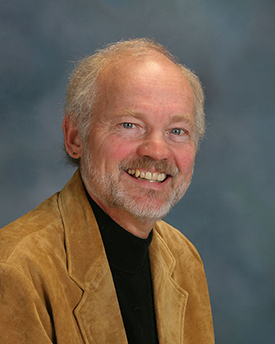
Former EPA Regional Counsel Pat Parenteau teaches environmental law at Vermont Law School (Photo: Courtesy of Vermont Law School)
CURWOOD: And Pat, looking at this case, how do you feel?
PARENTEAU: It's depressing, for someone who's been working in this field for 50 years, struggling to get laws passed, to get them implemented; what we're facing with this climate emergency is truly unlike anything we've ever faced. And the legacy that we are leaving for future generations is just scary to me. It's very disheartening. It's more than that -- it's terrifying, that somehow we can't get any of the branches of our government, the Congress, the courts, or the executive branch to come together and deal with the problem, with the solutions that are in plain sight. We have at our fingertips all of the technologies we need to make a huge difference in whether this planet is going to remain livable or not. And for someone like me, it's really a disheartening moment to see an opinion like this from our nation's highest court.
CURWOOD: Pat Parenteau is a Professor of Environmental Law at the Vermont Law School. Pat, thanks so much for taking the time with us today.
PARENTEAU: Thanks for having me, Steve.
Links
Axios | “Supreme Court Reins in Biden's Power on Climate Change”
Politico | “Supreme Court Handcuffs Biden’s Climate Efforts”
Read the Opinion of the Court and Justice Kagan's dissent in West Virginia v. EPA
Living on Earth wants to hear from you!
Living on Earth
62 Calef Highway, Suite 212
Lee, NH 03861
Telephone: 617-287-4121
E-mail: comments@loe.org
Newsletter [Click here]
Donate to Living on Earth!
Living on Earth is an independent media program and relies entirely on contributions from listeners and institutions supporting public service. Please donate now to preserve an independent environmental voice.
NewsletterLiving on Earth offers a weekly delivery of the show's rundown to your mailbox. Sign up for our newsletter today!
 Sailors For The Sea: Be the change you want to sea.
Sailors For The Sea: Be the change you want to sea.
 The Grantham Foundation for the Protection of the Environment: Committed to protecting and improving the health of the global environment.
The Grantham Foundation for the Protection of the Environment: Committed to protecting and improving the health of the global environment.
 Contribute to Living on Earth and receive, as our gift to you, an archival print of one of Mark Seth Lender's extraordinary wildlife photographs. Follow the link to see Mark's current collection of photographs.
Contribute to Living on Earth and receive, as our gift to you, an archival print of one of Mark Seth Lender's extraordinary wildlife photographs. Follow the link to see Mark's current collection of photographs.
 Buy a signed copy of Mark Seth Lender's book Smeagull the Seagull & support Living on Earth
Buy a signed copy of Mark Seth Lender's book Smeagull the Seagull & support Living on Earth

